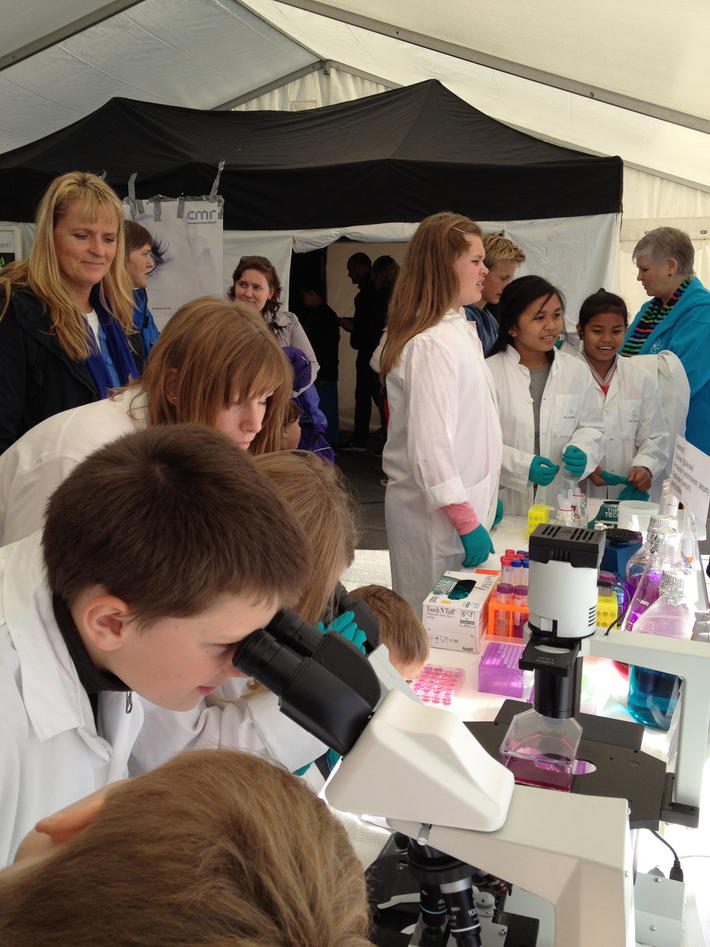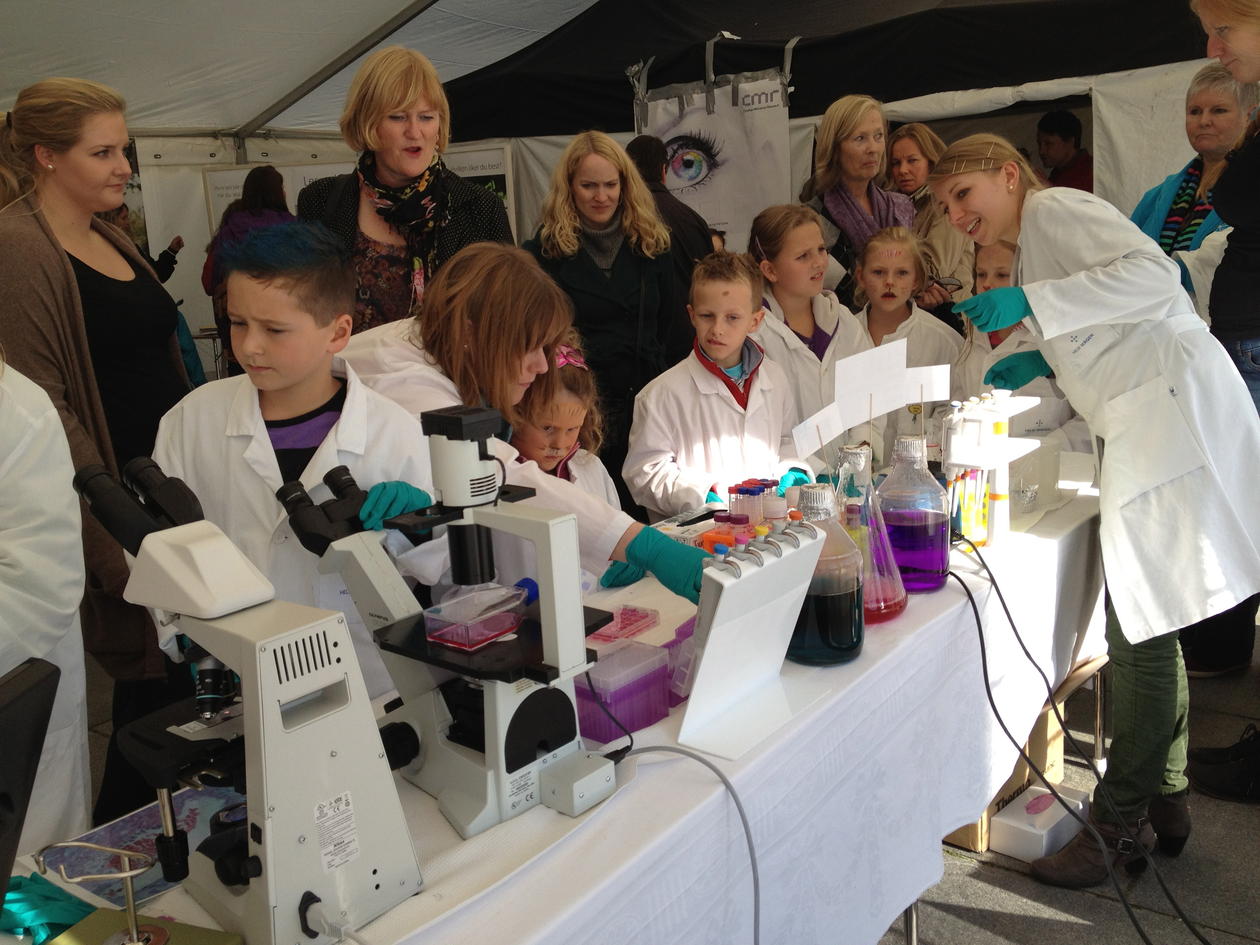National Science Week (Forskningsdagene)
What is cancer and where does it come from?

Main content
Cancer is a scary word that many people associate with serious illness. Almost everyone knows someone who has been diagnosed with cancer, or have lost loved ones due to cancer. Our body consists of billions of cells, small entities that form different parts of our body and work together to keep us healthy. Cells divide when we grow or to replace those that get injured, but the cell division stops when new or more cells are not needed. Cancer occurs when the DNA our cells get damaged and they start dividing in an uncontrolled manner, more cells are made, fewer are removed, and eventually a harmful lump called a tumor forms. Some cells in the tumor can break loose and wander to other places in the body through the blood and lymphatic fluids. Here the cells form new clumps that destroy the healthy functioning of the body organs.
But how on earth do we know all this?
Wondering how scientists search to find the causes and discover new treatments against cancer?
Come to The Cancer Society´s stand and know how to be a cancer researcher in 5 minutes
Children 'need more teaching on cancer causes'
(from BBC Health http://www.bbc.com/news/health-19504674)
Children are unaware of what causes cancer, with a small number believing they can get it from behaving badly, suggests a poll by Macmillan Cancer Support.
The survey of 500 children aged nine to 16-years-old found that 97% do not know that sunburn can cause cancer - although 91% do know smoking causes it.
The charity says the results suggest children are ill-informed about cancer.
Teachers need to educate school children on cancer, it adds.
The children who responded to the poll also do not appear to know what it means to have cancer.
One in five think it is always fatal, while more than half say they do not know what it is.
And 4% even think cancer can be caught from someone else.
Despite this, two-thirds of the children polled know someone who has been diagnosed with cancer, though more than half say the word 'cancer' makes them feel frightened.
Katherine Donnelly from Macmillan Cancer Support said many people, including teachers, think that young children should be protected from talking about cancer.
"In many ways, it's still a bit of a taboo subject. Not all teachers feel confident about talking about it or know where to get the facts and figures from.
"The results showed that as children got older there was a slight increase in the number of those that had been taught about cancer, but not a hugely significant number."
Miss Donnelly added: "As cancer affects more and more people, the chances of children knowing someone with the condition grows - be that their grandparent, parent or friend. This can be really distressing and they may feel too worried to ask questions.
"Just over a quarter of children have been taught about cancer at school and this needs to improve."
The charity has produced an information pack called Talking About Cancer to allow teachers to plan lessons around the subject.

